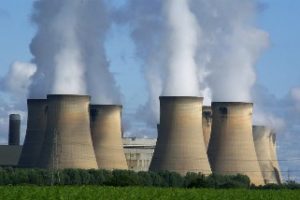The virus crisis and the low-carbon transition – Editor

An article by Prof John Hewson (ANU) in The Conversation on 5th April [1] argues that there is an up-side as well as a down-side from the current corona virus crisis. Quoting from this article:
“ There are ‘pluses’ from the experience of coronavirus. Emissions are falling, although no one would advocate global recession as a climate strategy.
And the response of governments to the crisis has seen decisive domestic action – working individually, but togeth- er, in meeting a global challenge.
“ Individual governments have demon- strated how quickly they can move once they accept the reality of a crisis. We’ve also seen just how far they’re prepared to go in terms of policy responses – lockdowns, social distancing, testing, rapid and historically significant fiscal expansions, and massive liquidity injections.
“ It’s noteworthy that issues that in ‘normal times’ could not have been ignored – such as civil liberties and concerns about intrusive governments and effective competition – have so easily been set aside as part of emergency responses. “
The global picture is that:
“ The lowered emissions provide an opportunity to ‘reset’ the base for the climate transition. Any effective bounce back from recession should involve strategic thinking and planning as to what industrial and trading structures, and social norms, will be appropriate. The climate transition offers opportuneities to develop and exploit new technologies, and generate new businesses, new industries, new jobs and sustain- able growth.
“ Some nations may use the cover of coronavirus to sneak out of even their low-ambition Paris commitments.
Japan, for example, last week reaffirm- ed its 2015 Paris goal, despite the UN urging much tougher action.
“ But I suspect the major nations will continue to lead the way in transition. The UK Prime Minister has led a global call to reach net-zero emissions by 2050. Presumably, he saw the UK’s hosting of COP26 as a chance to substantiate his position as a leader on climate. Europe and China will also undoubtedly seize the opportunity to lead. It’s significant that their govern- ments remain committed to what was a pre-COP bilateral meeting later this year. I suspect they will work towards pulling each other up on their coat tails.
“ The US situation is harder to judge. If President Trump survives to a second term, expect more chaotic, negative rhetoric and action on climate, even from the depths of what is shaping as the biggest US economic slump since the Great Depression. But if Trump loses – an increasingly likely proposition as his irresponsible and destructive manoeuvring around coronavirus hurts him politically – the US would probably seek to assume more of a leadership role on climate.
“ Not only did Trump pull out of the Paris agreement, but he embarked on a campaign to weaken environmental obligations on industry, weaken the Environmental Protection Authority, and reverse vehicle emissions reduction standards. However, Trump’s campaigns were offset somewhat as key cities, states and industries pushed ahead on the transition anyway. “
On the home front Hewson observes:
“ Pre-virus, Australia had a weak and weakening economy, with many serious structural challenges. The government now faces a very significant financing and debt management task, with limited capacity to restrain spending, and a political reluctance to raise taxes. My hope is that [the federal government] will recognise the imperative, and the development opportunities, of an effective transition to a low-carbon Australia over the next three decades. “
Dr John Hewson is Professor and Chair, Tax and Transfer Policy Institute, ANU.






























